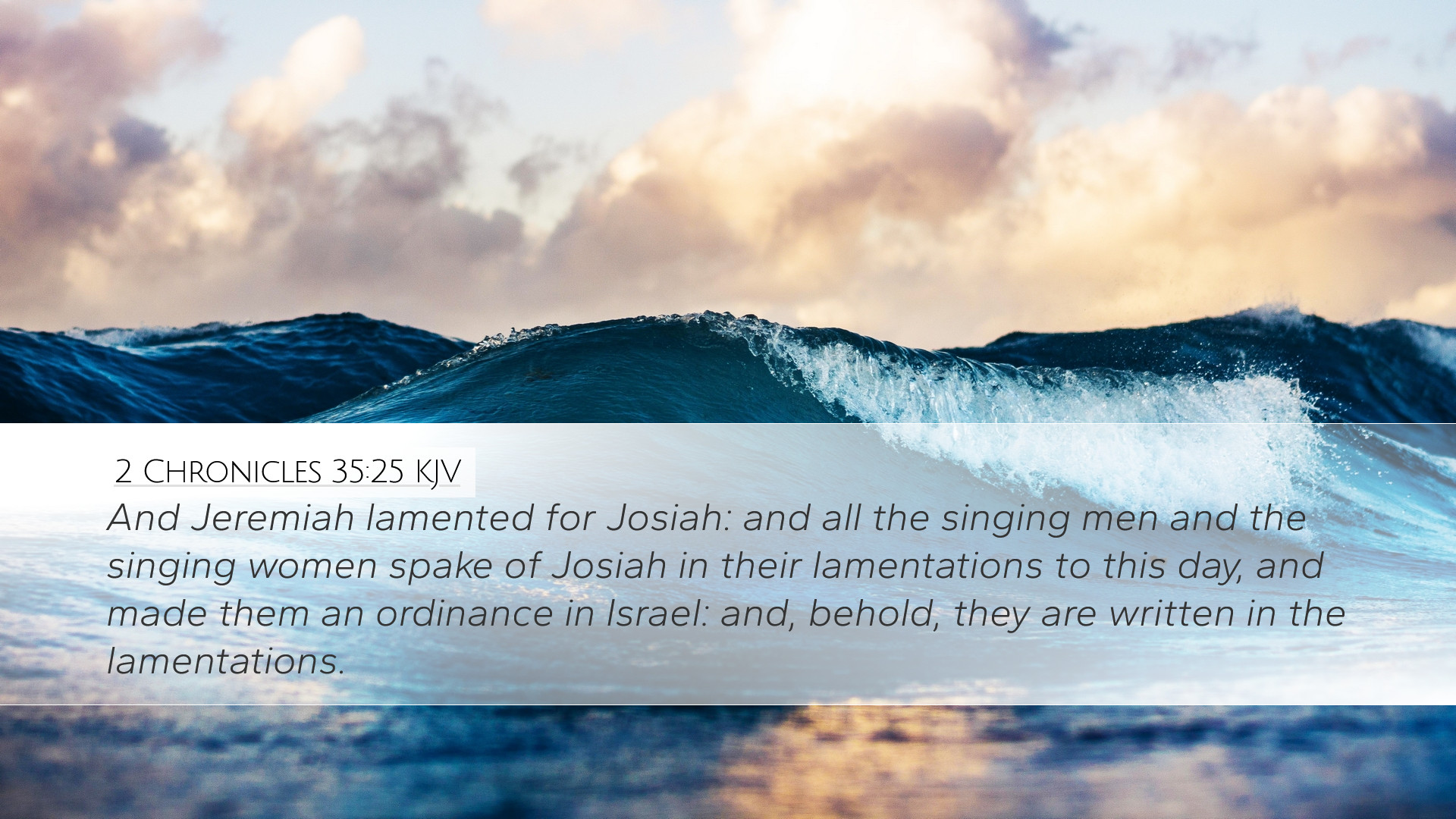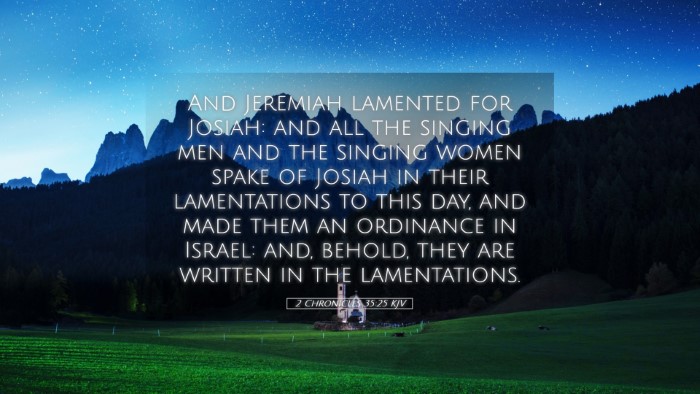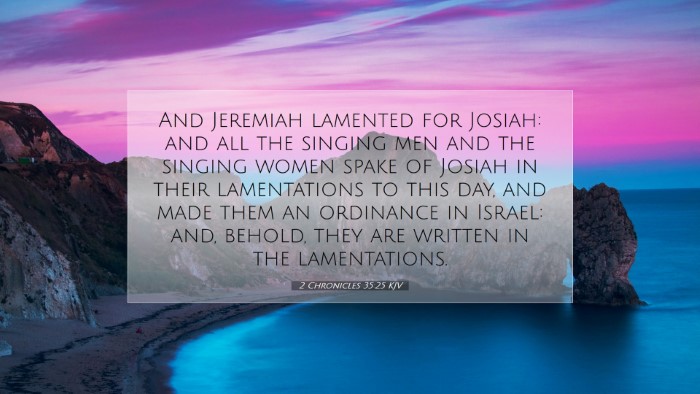Commentary on 2 Chronicles 35:25
Verse: 2 Chronicles 35:25 - "And Jeremiah lamented for Josiah: and all the singing men and the singing women spake of Josiah in their lamentations to this day, and made them an ordinance in Israel: and, behold, they are written in the lamentations."
Introduction
The death of King Josiah marks a profound moment in the annals of the Kingdom of Judah. As seen in 2 Chronicles 35:25, the nation mourned deeply for Josiah—a king who restored covenant practices and sought to revitalize the worship of Yahweh. This verse highlights not only the respect held for Josiah but also establishes the ongoing cultural significance of lament in Israel. In synthesizing insights from public domain commentaries, we will explore the layers of meaning behind this lamentation.
Lamentation for Josiah
Jeremiah, the prophet, played a significant role in mourning for Josiah. According to Matthew Henry, this verse reveals the depth of spiritual leadership demonstrated by Jeremiah during this national crisis. His lamentation reflects not just personal grief but spiritual anguish over the loss of a righteous leader and the impending judgment upon Judah due to their continual rebellion against God.
- Jeremiah's Role: Jeremiah was not only concerned with the fallen state of the monarchy but also the spiritual state of the people. His lamentation serves as a reminder of the connection between leadership and spiritual health within a nation.
- Public Mourning: The collective mourning—echoed by the singing men and women—demonstrates how deeply Josiah's reign affected the people. According to Albert Barnes, this was a public recognition of the king’s righteous deeds, generating a palpable sense of loss among the populace.
The Significance of Lamentations
The establishment of lamentations for Josiah as an ordinance underscores the importance of memorializing righteous leadership in Hebrew culture. Adam Clarke points out that the lamentations offered a means for future generations to remember Josiah's commitment to God and His law.
- Remembering the Righteous: Lamentations serve as a memorial, not just for the specific individual but as an exhortation for the living to emulate the virtues of the deceased.
- Cultural Impact: The lamentations became a part of Israel's cultural heritage, ensuring that the memory of Josiah's reforms and greater acts of devotion remained alive in the hearts of the people.
Theological Implications
Theologically, this verse invites reflection on God’s covenant relationship with His people and the consequences of righteous leadership contrasted with folly. As Henry emphasizes, Josiah's life exemplified faithfulness to Yahweh amidst a backdrop of moral decay—his death serves as a poignant reminder of the fragility of godliness within the community.
- Leadership and Accountability: The narrative suggests that leaders play a critical role in guiding their communities. The loss of a godly king leads to an inevitable declension in faithfulness among the people.
- Judgment and Hope: The lament signifies both a loss and a tacit acknowledgment of divine judgment that follows unfaithfulness, invoking hope for future restoration as the nation remembers its heritage.
Contemporary Reflections
For modern pastors and theologians, the lament over Josiah serves as a lens through which to examine contemporary leadership within the church. Comparing their responsibility to that of Josiah’s highlights the urgent need for leaders who are grounded in scriptural truth and committed to guiding their communities toward holiness.
- The Role of Spiritual Leaders: Current church leaders are called to emulate Josiah's example in seriousness about their faith and in pursuing reforms that bring people closer to God's heart.
- Emotional Honesty: The communal lamentation reflects the necessity of expressing grief over loss, whether that be a leader, a loved one, or even the loss of spiritual vitality.
Conclusion
2 Chronicles 35:25 stands as a memorial not just for King Josiah but as a lesson in righteous leadership, communal reflection, and the importance of lamentation. It combines elements of history, theology, and practical application, drawing profound lessons for today’s church. Perhaps most significantly, it reminds all believers that the legacy of faithful leaders influences the trajectory of their communities, urging present and future generations to embrace a deeper commitment to God's commands.


